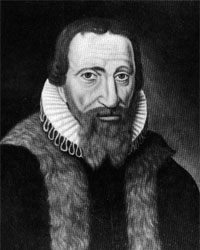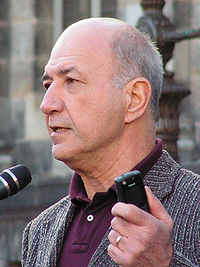Canon of Groningen





The Canon of Groningen is a list of 40 hallmarks and 52 icons that provides a chronological summary of the history of the city and province of Groningen.
The canon is an initiative of the former Huis van de Groninger Cultuur (since 2017 the Centrum Groninger Taal en Cultuur),[1] the Cultuurhistorische vereniging Stad en Lande[2] and the Regional Historic Center Groninger Archieven.[3] On 8 May 2008, the canon was launched by the Queen's Commissioner Max van den Berg by firing a cannon at the Groninger Archieven. The canon has appeared in print[4] and can be viewed online.[5] This is the first provincial canon after the publication of the Canon of the Netherlands in 2006.
Hallmarks[edit]
A selection of themes covered in the canon:
- 1. Hunebedden (3000 BCE–2000 BCE)[6]
- 10. The staple right (1473–1798)[7]
- 13. Battle of Heiligerlee (1568)[8]
- 14. The Reduction (1594)[9]
- 24. Patriotten and prinsgezinden (1780–1795)[10]
- 27. The Afscheiding (1834–1840)[11]
- 32. De Ploeg (1918–present)[12]
- 37. The Gas Bubble of Slochteren (1959–present)[13]
- 40. Blauwe Stad (2005)[14]
Icons[edit]
- Ludger (742–809), missionary
- Walfridus of Bedum (10th/11th century), martyr
- Emo of Friesland (c. 1175–1237), abbot and chronicler
- Menko of Bloemhof (born 1213), abbot and chronicler
- Rodolphus Agricola (1444–1485), humanist scholar
- Beetke of Rasquert (died 1554), businesswoman
- Bartholt Entens of Mentheda (1539–1580), watergeus
- Ubbo Emmius (1547–1625), rector magnificus
- William Louis, Count of Nassau-Dillenburg (1560–1620), stadhouder
- Adriaan Clant (1599–1665), diplomat
- Carl von Rabenhaupt (1602–1675), defender of Stad and Ommelanden
- Abel Tasman (1603–1659), explorer
- Adriaan Geerts Wildervanck (1605–1661), peat colonist and founder of Wildervank
- Herman Collenius (1650–1723), painter
- Johann Bernoulli (1667–1748), mathematician, physicist, professor
- John William, Baron Ripperda (1682–1737), ambassador
- Rudolf de Mepsche (1695–1754), jonker and grietman
- Daniel Bernoulli (1700–1782), mathematician, physicist, professor
- Wilhelmus Schortinghuis (1700–1750), minister and pietist
- Petrus Camper (1722–1789), zoologist, physician and professor
- Geert Reinders (1737–1815), rinderpest fighter and patriot
- Gerard Bacot (1743–1822), minister and patriot
- Hendrik Wester (1752–1821), schoolteacher and education reformer
- Henri Daniel Guyot (1753–1828), founder of the Henri Daniel Guyot Institute
- Hendrik de Cock (1801–1842), minister, stood at the cradle of the Afscheiding
- Anthony Winkler Prins (1817–1908), writer and chief editor of the Winkler Prins encyclopedia
- Willem Albert Scholten (1819–1892), industrialist
- Jozef Israëls (1824–1911), painter
- Samuel van Houten (1837–1930), politician
- Otto Eerelman (1839–1926), painter
- Pieter Roelf Bos (1847–1902), publisher of the Bosatlas
- Hendrik Goeman Borgesius (1847–1917), minister
- Jacobus Kapteyn (1851–1922), astronomer and professor
- Heike Kamerlingh Onnes (1853–1926), physicist and Nobel laureate
- Aletta Jacobs (1854–1929), physician and women's suffrage activist
- Jan Schaper (1868–1934), politician
- Kornelis ter Laan (1871–1963), politician
- Johan Huizinga (1872–1945), historian
- Cornelis Jetses (1873–1955), illustrator
- Hendrik Nicolaas Werkman (1882–1945), artist
- Albert Egges van Giffen (1884–1973), archaeologist
- Frits Zernike (1888–1966), physicist and Nobel laureate
- Hendrik de Vries (1896–1989), poet and painter
- Dirk Stikker (1897–1979), Secretary General of NATO and diplomat
- Bert Röling (1906–1985), jurist
- Sicco Mansholt (1908–1995), minister and President of the European Commission
- Fré Meis (1921–1992), trade unionist
- Gerrit Krol (1934–2013), writer and poet
- Rutger Kopland (1934–2012), poet
- Ede Staal (1941–1986), singer
- Wubbo Ockels (1946–2014), astronaut
- Marianne Timmer (born 1974), speed skater
See also[edit]
- Canon of the Netherlands
- Canon of Amsterdam
- Canon of Friesland
- Canon of Gelderland
- Canon of Limburg
- Canon of Zeeland
- Canon of South Holland
- Canon of Curaçao
References[edit]
- ^ "CGTC | Actualiteitensite van Centrum Groninger Taal en Cultuur" (in Dutch). Retrieved 21 May 2022.
- ^ "Vereniging Stad en Lande | Voor iedereen met interesse in de geschiedenis van stad en provincie Groningen" (in Dutch). Retrieved 21 May 2022.
- ^ "Maak Geschiedenis – Groninger Archieven" (in Dutch). Retrieved 21 May 2022.
- ^ Boels, Hendrik; Buursma, Albert (2008). Canon van Groningen: 40 ijkpunten uit de Groninger geschiedenis (in Dutch). Groningen: Huis van de Groninger Cultuur. ISBN 9789080922952.
- ^ "Canon › De verhalen van Groningen". deverhalenvangroningen.nl (in Dutch). Retrieved 21 May 2022.
- ^ "Groninger IJkpunt 1: Hunebedden". deverhalenvangroningen.nl (in Dutch). Retrieved 21 May 2022.
- ^ "Groninger IJkpunt 10: Het stapelrecht". deverhalenvangroningen.nl (in Dutch). Retrieved 21 May 2022.
- ^ "Groninger IJkpunt 13: Slag bij Heiligerlee". deverhalenvangroningen.nl (in Dutch). Retrieved 21 May 2022.
- ^ "Groninger IJkpunt 14: De Reductie". deverhalenvangroningen.nl (in Dutch). Retrieved 21 May 2022.
- ^ "Groninger IJkpunt 24: Patriotten en prinsgezinden". deverhalenvangroningen.nl (in Dutch). Retrieved 21 May 2022.
- ^ "Groninger IJkpunt 27: De Afscheiding". deverhalenvangroningen.nl (in Dutch). Retrieved 21 May 2022.
- ^ "Groninger IJkpunt 32: De Ploeg". deverhalenvangroningen.nl (in Dutch). Retrieved 21 May 2022.
- ^ "Groninger IJkpunt 37: De Gasbel van Slochteren". deverhalenvangroningen.nl (in Dutch). Retrieved 21 May 2022.
- ^ "Groninger IJkpunt 40: Blauwe Stad". deverhalenvangroningen.nl (in Dutch). Retrieved 21 May 2022.
